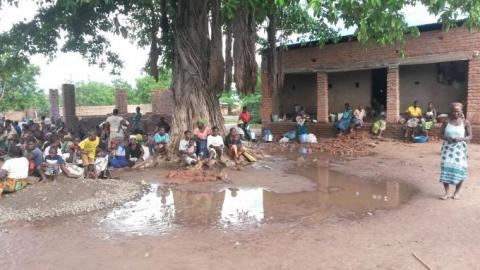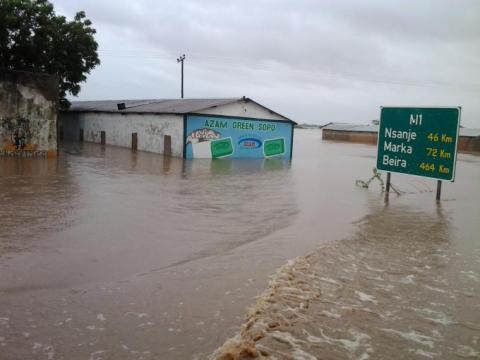Malawi is Swept by Devastating Floods – a Mandate to Respond
In Malawi, the New Year has begun on a celebratory note for some – and on a more insecure one for others. Since the beginning of January, heavy rains have hit the Southern districts of Malawi, which have caused devastating floods in 15 of the countries districts (Nsanje, Chikwawa, Phalombe, Zomba, Blantyre, Chiradzulu, Thyolo, Mulanje, Balaka, Machinga, Mangochi, Ntcheu, Salima, Rumphi and Karonga) – some being worst affected than others.

As of 18th January, according to the Department of Disaster Management Affair’s (DoDMA) most recent situation report, 54 people have been killed, 121,000 people displaced, 116,000 farming households suffering damage to crops – whilst over 100 people are still missing. The floods have washed away crops, livestock and have destroyed key roads and bridges – making rescue efforts more difficult. The situation is expected to get worse according to Malawi’s Department of Climate Change and Meteorological Services who are warning of heavy rainfall and flash floods for the next two to three weeks.
On 13th January 2015, Malawi’s President, Peter Arthur Mutharika made a Declaration of a State of Disaster. In response, various clusters, being led by DoDMA have begun providing food and non-food items to those affected. A cluster is a group of agencies (UN and non-UN) that collaborate in thematic areas in times of a humanitarian response.
At Save the Children, a committee being led by the Senior Manager of Humanitarian Affairs, James Lwanda has been set up to address issues in the areas of Education, Child Protection, Food Security and Agriculture, Health, Shelter and Non-Food Items (NFIs) and Water Sanitation and Hygiene (WASH). “We have a global mandate to respond in humanitarian situations because we are worried about the impact of humanitarian situations on the well being of children,” said Country Director, Matthew Pickard. In saying so, the organisation will be taking lead and focusing their resources in the heavily affected districts of Zomba, Phalombe and Chiradzulu.

The Malawi Country Office has mobilised resources and has begun a response distributing food and non-food items to affected households in Zomba and Phalombe, thanks to funds from the Save the Children emergency fund, Save the Children Italy and the UK’s START fund. Save the Children is committed to continuing its collaboration within the clusters and to continue participating in inter-agency assessments on the ground.
Written by Luzayo Nyirongo, Strategic Communications Officer
 Malawi
Malawi